InTERFEWS Trainees
InTERFEWS brings together PhD students from traditionally disparate disciplines to conduct research on key problems in the FEW nexus with a focus on water-scarce, arid regions.
Economics
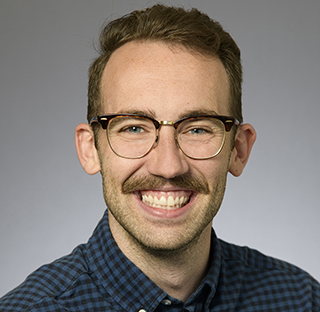
Joey Blumberg
Agricultural & Resource Economics
Bio
Joey started his PhD program in the Department of Agricultural and Resource Economics in Fall 2019, and became an InTERFEWS trainee in Fall 2020. He previously earned his MS in Applied Economics and Policy Analysis and BS in Agribusiness Economics and Management from the University of Arizona. His interests broadly lie in the economics of water resources and the impacts of climate change on food-energy-water systems. In his dissertation research, Joey covers topics such as irrigation technology adoption, the efficiency of water allocation mechanisms, and the quantification climate change damages.
Research
Comparing the Efficiency of Water Allocation Mechanisms
The Western United States is one of the fastest growing regions in the country and encompasses the driest areas of North America. New and competing interests for water continue to emerge, and surface water shortages in arid regions are expected to worsen under climate change. The extent to which increasing water scarcity affects western river basins will depend on the ability of human systems to adapt. While there have been marked improvements in water use efficiency through technological innovation, institutional changes in the governance of western water are occurring slowly. If the mechanism that governs water use inherently introduces inefficiencies, reaching a social optimum through technological improvement alone is unlikely. The purpose of this research is to compare the efficiency of different water allocation institutions and evaluate the impacts of return flows, heterogeneous users, and user locations (i.e., upstream or downstream) on allocative performance. We focus primarily on two existing institutions: prior appropriation and proportional sharing, and secondarily on alternative, hybrid institutions. Prior appropriation is the predominant institution governing water allocation in the Western US, and proportional sharing is an emerging institution that has been adopted at smaller scales in Colorado and New Mexico.
The first step in this research will involve the development of a simple, conceptual economic model to develop hypotheses about the performance of different allocation mechanisms under varying basin compositions. Insights and hypotheses from the simple model will then be examined and tested using the Water Evaluation and Planning System (WEAP), parameterized to reflect Colorado’s South Platte River Basin (SPRB). The SPRB contains Colorado’s highest concentration of irrigated agriculture and over 80% of the state’s population, making it a useful case study. Extended droughts and competing uses for water within the SPRB reflect commonly emerging issues throughout the Western US. The outcomes of different allocation mechanisms (e.g., water deliveries and shortages for different users) in WEAP will be analyzed using a variety of efficiency metrics and under a variety of climate scenarios. Overall, this is research will elucidate the important factors for consideration when designing rules for governing water use.
Advisors:
Chris Goemans (Agricultural & Resource Economics)
Dale Manning (Agricultural & Resource Economics)
Mazdak Arabi (Civil & Environmental Engineering)
InTERFEWS Mentor: Chris Goemans (Agricultural & Resource Economics)
Interdisciplinary Aspects
This project will comprise a hydro-economic modelling effort that integrates economic decision-making, hydrologic systems, water law, and a wide swath of climate projections.
Systems Perspective
Using the South Platte River Basin as a case study, this research aims to scrutinize the distributional impacts of different water allocation mechanisms. For example, we will assess how institutional changes alter return flows and overall water availability for different users within the Food-Energy-Water nexus.
Engineering
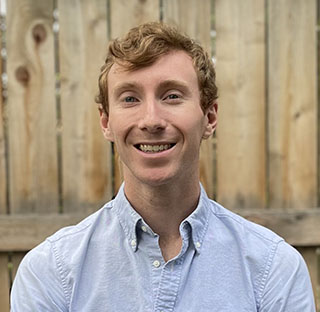
Kees Baas
Mechanical Engineering
Bio
Kees started his PhD program in the department of Chemical and Biological Engineering in the Fall of 2020 and became an InTERFEWS trainee in the Fall of 2022 (cohort 4). He earned an undergraduate degree in Chemical and Biological Engineering from the University of Delaware in 2018. Kees’ research focuses on using biochemical engineering for sustainable applications. He’s primarily interested in the potential use of algae and cyanobacteria for renewable production of fuels and commodity chemicals which are traditionally produced from fossil fuels.
Research
Coming Soon!
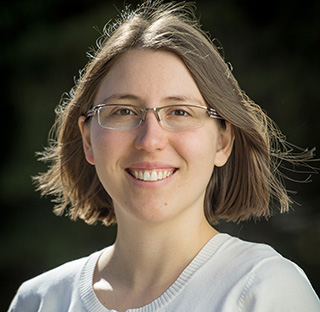
Kimberley Corwin
Atmospheric Science
Bio
Kimberley began pursuing a PhD in the Department of Atmospheric Science and joined the InTERFEWS program in Fall 2020 (cohort 2). Her research focuses on how wildfire smoke impacts incoming solar radiation and, in turn, our food system. Her broader interests are in atmospheric chemistry and aerosol research with a focus on combining in-situ, remotely sensed, and human systems data to better understand the impacts of climate change and human activities. She also has a strong interest in promoting women and girls in STEM and environmental and climate justice issues. Kimberley has a M.S. in Geology from Boise State University and a B.A. in Geosciences and Medieval/Renaissance Studies from Wellesley College.
Research
Fires to Farms: How does wildfire smoke driven changes in radiation impact crops?
Human-caused climate change, natural climate variability, and a legacy of wildfire suppression all contribute to variability in western U.S. wildfire activity. While communities within or near wildland-urban interfaces experience the most devastating effects of wildfires, smoke can impact communities far downwind. Forest fires are a large source of atmospheric particulate matter (PM), also called aerosols, which are transported thousands of kilometers in the atmosphere. Studies suggest that the scattering of visible light by aerosols, including transported smoke, may impact crop productivity, and therefore food production capacity, through changes to crop radiation use efficiency (RUE). However, the magnitude and sign of this effect remain uncertain. The impact of interactions between these smoke-induced effects and other climate-related stressors (e.g., water availability and extreme weather) on crop yields are also not understood.
By drawing together atmospheric, agricultural, and economic data, we will determine how wildfire smoke impacts U.S. food production. Specifically, we will integrate remote sensing smoke datasets from the National Oceanic and Atmospheric Administration (NOAA) with surface-based solar radiation measurements from the U.S. Department of Agriculture (USDA) UV-B Monitoring and Research Program to determine how smoke contributes to observed temporal and spatial variability in visible radiation reaching the surface. We will then integrate these results with county-level yield data from the USDA Farm Service Agency to determine how this variability impacts crop yields and wages via modifications to crop RUE in the Midwest and Western U.S. By evaluating yields and wages, we will estimate the indirect impacts of smoke on rural economies, an important contribution to the economic literature. We hypothesize that smoke-induced changes to solar radiation may contribute to variability in crop yields, which may have severe economic consequences and become an even larger issue in a warmer world with increased forest fire activity. Potential interactions and feedbacks between smoke-induced changes to solar radiation and other climate stressors will also be explored. This work will inform future analyses of the impacts of climate change on food production.
Advisors:
Emily Fischer (Atmospheric Science)
Chelsea Corr-Limoges (Department of Biology/Chemistry, Springfield College)
Raj Khosla (Department of Agronomy, Kansas State University)
Jesse Burkhardt (Agricultural & Resource Economics)
InTERFEWS Mentor: Rich Conant (Ecosystem Science and Sustainability)
Interdisciplinary Aspects
Fires to Farms will combine expertise, analysis techniques, and datasets from atmospheric chemistry, radiation, economics, and agricultural sciences to determine how wildfire smoke impacts the U.S. food system. We will integrate remote sensing data on smoke plumes, in-situ measurements of surface radiation levels, and agricultural crop yield records to better understand the connections between these systems.
Systems Perspective
Investigating the impacts of smoke on agriculture requires a holistic perspective on human and natural systems and their interactions. Diverse expertise, datasets, and analysis approaches across several disciplines will be used to address this understudied aspect of the biological impact of climate change on agriculture. .
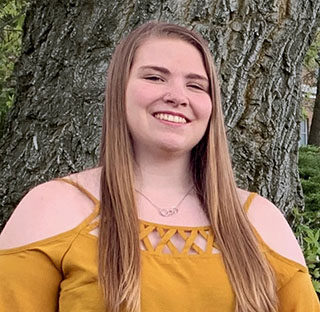
Brandi Grauberger
Mechanical Engineering
Bio
Brandi is pursuing a PhD in the Department of Mechanical Engineering at Colorado State University and started in the InTERFEWS program Fall 2020 (cohort 2). She began her PhD pathway in Fall 2019, in tandem with her final year of undergraduate studies in Mechanical Engineering at CSU. Brandi’s research is focused on thermally activated water treatment systems, specifically for sustainable treatment of produced water in the oil and natural gas industry with the goal of discharge or direct use in agricultural water systems. Her research interests include food-energy-water systems, thermal energy utilization, and economic evaluation and practical commercialization of technologies. Brandi also believes that education of the public on the food-energy-water nexus is an important part of her research objectives.
Research
Coming Soon!
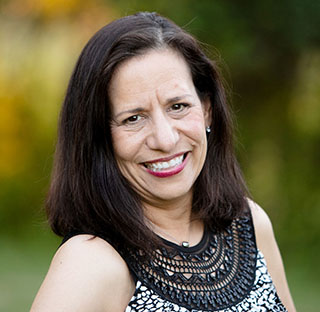
Karen Gupta
Civil Engineering & Construction Management, Joint PhD Program
Bio
Karen is pursuing a joint PhD in the Department of Civil and Environmental Engineering and Construction Management at CSU, and she joined InTERFEWS as a part of cohort 4 in the Fall of 2022. She began her doctoral program studies in August of 2021 following the May of 2020 completion of her master’s degree at the University of Illinois in Civil Engineering with a focus on Energy, Water, Environment and Sustainability. Karen returned to academia after working in the field of construction management for more than a decade; some of her recent work included large projects in both hospital and sustainable building construction. In her doctoral program, Karen’s goal is to pursue her interests in reducing the environmental footprint of construction projects beyond the current sustainability measurement programs available. Within her dissertation studies, she is studying how modifications in drinking water and project sanitation decisions in construction projects can work to improve the social, economic, and environmental conditions for workers, municipalities, and construction companies alike to reduce demands on the earth’s resources in the process of construction of the built environment.
Research
Coming Soon!
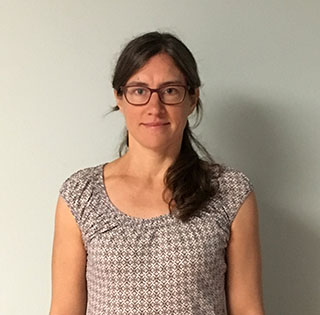
Kim Fewless
Civil & Environmental Engineering
Bio
Kim started in the InTERFEWS program (cohort 1) as a Civil and Environmental Engineering PhD candidate in Fall of 2019. Her master’s degree thesis analyzed the feasibility of decentralized wastewater treatment systems with nutrient recovery and water reuse. After a year of PhD research in atmospheric science (studying climate change and drought), she decided to return to engineering. Her current research interests include urban sustainability and resilience (technical, social, and institutional aspects), food-energy-water systems, environmental/climate justice, and applying systems analysis to engineering design. She is also an accomplished cellist (her first degree was in cello performance).
Research
Cooperative Water Sharing Agreements in the South Platte River Basin
Urbanization of adjacent farmland to urban centers is currently a major driver of the loss of irrigated agriculture in Colorado. With continued urban growth, limited water resources, and projected climate change, innovative institutional arrangements may be necessary to address projected water shortages without further loss of peri-urban agriculture (“buy and dry”). Water sharing agreements have been shown to decrease the buy and dry trend, which allows for further realization of the multifunctionality of peri-urban agriculture, yet the motivation for and execution of these agreements is complex and rare. This project will review existing water sharing projects to clarify critical needs for initiating new agreements and future research.
Advisor: Sybil Sharvelle (Civil & Environmental Engineering)
InTERFEWS Mentor: Sybil Sharvelle (Civil & Environmental Engineering)
Interdisciplinary Aspects
This project will utilize economic and policy analysis, as well as expertise from the social sciences for interview design.
Systems Perspective
The impacts of land and water use decision making affect food, energy, and water systems locally, regionally, and globally. A systems perspective is necessary to capture the complexity of these connections, and the implications of seemingly local decisions.
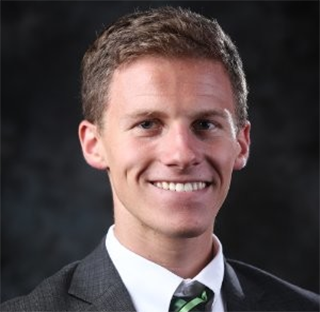
Reid Maynard
Mechanical Engineering
Bio
Reid is a PhD candidate in the Department of Mechanical Engineering, starting as an InTERFEWS fellow in Fall 2021 (cohort 3). He has a B.S. in Chemical and Biological Engineering from CSU and previously worked as a refinery process improvement engineer. Reid’s research interests focus on modeling the sustainability of emerging agricultural production systems and technologies, such as controlled environment agriculture. His current project centers on applying Life Cycle Assessment methods to evaluate the sustainability of distributed food systems compared to conventional systems.
Research
A Comparative Life Cycle Assessment of Local Food Production Systems to Conventional Centralized Agriculture in the Contiguous United States
As global urban populations have grown, local urban and peri-urban food production has seen growing interest as a pathway to sustainability. Urban Agriculture encapsulates a wide array of techniques and technologies, from community gardens to year-round indoor production facilities. While Urban Agriculture provides local benefits and reduces food transportation, these methods often present considerable tradeoffs, such as the significant energy footprint associated with year-round controlled environment agriculture (CEA) heating, cooling, and lighting requirements. A range of geographic factors, including climate, local energy resources, and distance from centralized production locations can significantly alter the sustainability of local systems compared to conventional practices. Previous research focused on case studies in particular locations, with results indicating that such controlled environment systems can have comparatively high environmental impacts due to significant energy intensity. Expanding beyond these individual case studies to capture regional variations would enable better stakeholder understanding of sustainability impacts and trade-offs.
Our research provides geographically resolved models to consider the energy and water impacts of local food systems across the contiguous United States. Combining U.S. Department of Energy EnergyPlus modelling with geographic resolution in climate, grid generation mix, and water scarcity, our Life Cycle Assessment (LCA) estimates the global warming impact, water footprint, and water scarcity footprint of year-round CEA lettuce production facilities. Further, we model the requirements and outputs of local soil cultivation, performing an LCA of local seasonal lettuce production. We then compare these results to the global warming and water impacts of conventional lettuce cultivation and transportation from California, where a majority of US lettuce is grown. Through these comparisons, stakeholders can understand the sustainability impacts of local food production and thus facilitate food-energy-water infrastructure decision-making.
Advisor: Jason Quinn (Mechanical Engineering)
InTERFEWS Mentor: Ken Reardon (Chemical & Biological Engineering)
Interdisciplinary Aspects
This project utilizes data, horticulture modelling, and experience from the agricultural sciences to create food production models. These designs are then integrated with energy and sustainability modelling tools to reveal the life cycle impacts of these systems.
Systems Perspective
Considering the impacts of local agriculture utilizes systems-thinking tools like life cycle analysis. Further, comparing different tradeoffs (e.g., climate impact, water impact, and the value of local production) requires systems-level thinking to provide valuable insight to local decision-makers.
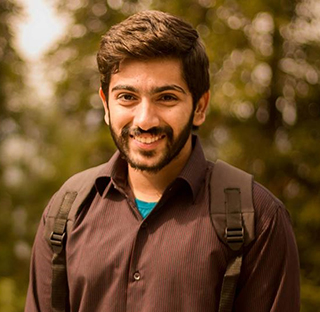
Muhammad Raffae
Civil & Environmental Engineering
Bio
Raffae is a Ph.D. student in the Department of Civil and Environmental Engineering focusing on Water Resources Planning and Management. He started his doctorate in Fall 2020 and joined the InTERFEWS Program in Fall 2021 (cohort 3). During his Ph.D., he will do hydrologic modeling, specifically focused on groundwater modeling, in the Upper Colorado River Basin. He will try to answer scientific questions such as how the streamflow and the subsurface flows will change based on different water and irrigation management scenarios under climate change. Raffae is also interested in linking technical water issues to policy and socioeconomic aspects. He likes to play table tennis and watch football (soccer).
Research
Coming Soon!
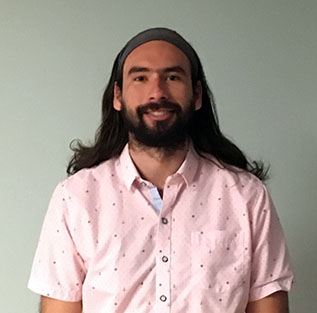
Jorge Luis Rico Reyes
Civil & Environmental Engineering
Bio
Jorge is a PhD candidate in the Department of Civil and Environmental Engineering, which he began in fall 2019. Jorge also became part of the first cohort of the InTERFEWS program in Fall 2019. He has a B.S. in Chemical Engineering from the Industrial University of Santander (Colombia), and an M.S. in Civil and Environmental Engineering from Colorado State University. His areas of focus are environmental biotechnology, organic waste valorization, and food-energy-water systems. His research interests include anaerobic digestion, composting, microbiome engineering, systems analysis, social movements, and environmental justice.
Research
Anaerobic Treatment of Organic Wastes for Resource Recovery
Overproduction and underutilization of organic waste is a current global challenge. Organic waste materials such as municipal fraction organic waste (e.g. food waste and yard waste), food processing wastewater, and manure from animal feeding operations, can be treated for composting or to produce energy in the form of methane biogas. However, in spite of the added value opportunities of these waste-derived products, most organic residues are not utilized and end up in landfills (more than 50% of total landfilled waste is organic biomass). Underutilization of organic waste is due to the current focus of waste treatment procedures on only meeting environmental waste management regulations, and the limited economic viability of current organic waste treatment technologies. Incentives for waste valorization to stakeholders, therefore, could promote the appropriate beneficial use of organic residues avoiding landfill accumulation. However, improving economics could potentially drive adoption without incentives.
An emerging approach for the valorization of organic residues is the production of organic acids. Organic acids can be upgraded into energy pipeline chemicals or biochemicals with versatile uses in several markets including fuels, pharmaceuticals, food preservatives among others. The economic value of organic acids is higher than methane biogas and compost, which leads to more favorable economics for the overall process. Little is understood about the systems-level impacts of recovering methane versus more financially valuable organic acids. Uncertainty in whether to focus on technology development on methane or organic acid production is currently inhibiting advancement in the field. Further, tradeoffs exist between the generation of different products from organic waste material.
This project aims to develop resource recovery technologies from organic residues and assess tradeoffs between recovery of different products in the context of the food-energy-water nexus (FEWS). Jorge will design and conduct experiments to optimize organic acid production from different organic waste sources. He will use technological development insights to understand systems-level considerations for the different resource recovery products. This research can inform high-level policy decisions that impact research and development of anaerobic technology for resource recovery.
Advisor: Susan De Long (Civil & Environmental Engineering)
InTERFEWS Mentors:
Kenneth Reardon (Chemical & Biological Engineering)
Sybil Sharvelle (Civil & Environmental Engineering)
Interdisciplinary Aspects
Technological development integrated with the development of system-level models to assess tradeoffs. Economics and policy are deeply embedded in this project.
Systems Perspective
This project includes systems-level analysis of the impacts of resource recovery products from organic waste material to broadly assess FEWS impacts and carbon footprint.

Laura Supple
Civil & Environmental Engineering
Bio
Laura joined the CSU Department of Civil & Environmental Engineering as a PhD student in the Fall of 2022, and she joined InTERFEWS as a part of cohort 4 in the Fall of 2022. She holds a B.S. in Environmental Health Engineering from Johns Hopkins University and an M.P.S. in Sustainable Urban Planning from George Washington University, and currently works with the National Renewable Energy Laboratory supporting place-based planning and technical assistance for community-scale clean energy transitions. Before earning her degrees, Laura spent a year as a traveling volunteer farmworker, where she discovered a passion for sustainable agriculture, ecological design, and food justice. Laura’s research interests center on the human dimensions of food-energy-water systems and infrastructures, and the role of adaptive feedback cycles among biophysical, sociocultural, and technological components of human-dominated ecosystems in shaping community health and resilience.
Research
Coming Soon!
Food Systems
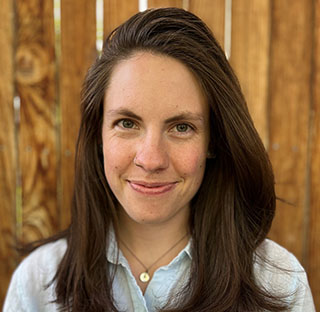
Taylor Bacon
Soil & Crop Sciences
Bio
Taylor started her PhD student in the Department of Soil and Crop Science and joined the InTERFEWS program (cohort 4) in Fall 2022. Her research interests include the synergies between food and energy systems, quantification and mitigation of land-use related greenhouse gas emissions, and soil carbon management. Taylor has a B.S.E in Chemical & Biological Engineering with a focus on sustainable energy from Princeton University and a background in environmental policy and regulation.
Research
Coming Soon!
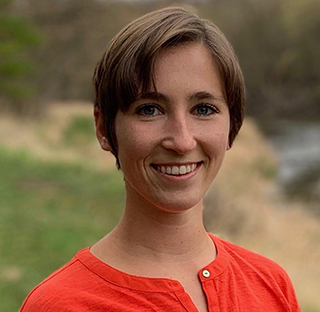
Avery Driscoll
Soil & Crop Sciences
Bio
Avery started her PhD in the Department of Soil and Crop Sciences and joined the InTERFEWS program (cohort 3) in the fall of 2021. Broadly, her research interests include quantifying the environmental impacts of cropping systems, understanding crop responses to climate change, and equipping growers with management tools to adapt to changing growing conditions. She hopes to work across spatial scales, deriving implementable solutions to agricultural challenges by leveraging large-scale data analyses. She has a B.S. in Environmental Science from Westminster College and a background studying desert plant ecophysiology and stable isotope ecology at the University of Utah.
Research
Coming Soon!
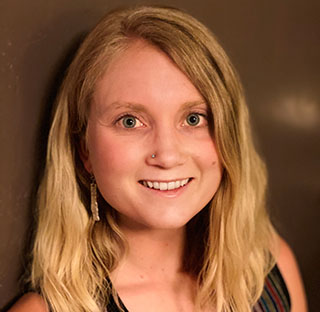
Elizabeth Ellis
Soil & Crop Sciences
Bio
Ellie began her PhD in the Department of Soil and Crop Sciences and joined the InTERFEWS program (cohort 2) in the fall of 2020. Her research will investigate regenerative agriculture’s potential to sequester carbon and build landscape resilience in the face of climate change. Her research will focus on the Northern Great Plains agricultural region, including indigenous lands. She has a background in science communication, science art, and wilderness therapy which she plans to integrate into her research endeavors. Ellie has a B.A. in Geology and Environmental Analysis from Pitzer College and was a recipient of the Thomas J. Watson fellowship.
Research
Can regenerative agriculture increase agroecosystem resilience, sequester carbon and sustainably produce food and fiber?
Impacts of regenerative agricultural management practices on climate resilience, soil carbon sequestration, soil quality metrics, crop productions, and economic sustainability of cropland systems will be assessed in the Northern Great Plains (NGP) Region. The study will focus on the nexus of food production and water issues in the NGP region, made up of Montana, Wyoming, North Dakota, South Dakota, and Nebraska. The region encompasses 24% of all US cropland and is the leading agricultural region for a number of major commodities, e.g. barley, spring wheat, cattle, dry beans, sunflower, etc. Water is the major crop-limiting factor through much of the region, which is subject to extremes of both drought and flooding, both of which are projected to increase in frequency with continued climate change. Many of the soils in the region have been degraded and depleted of organic matter as a consequence of conventional practices such as annual crop-summer fallow rotations and intensive tillage. Regenerative agricultural practices, including high diversity cover cropping, no-till, agroforestry, rotation with perennial forage crops, and integrate livestock management have the capacity to increase soil organic matter content, improve water infiltration and water retention, and improve nutrient retention and recycling – all of which should increase system resilience to projected climate changes and contribute to CO2 drawdown. The project will include farm-level soil measurement and farm surveys to compare conventional vs. regenerative practices as well as regional-scale model-based assessments of the impacts of management system changes on soil carbon removal and sequestration, soil quality metrics, and agroecosystem sustainability. 10-15 farms will be selected across the region that have practiced regenerative farming for at least five years. Based on land management practices prior to regenerative adoption, nearby operations with similar climate, soil, topographic and land use histories that have continued conventional practices (which remain the dominant management systems of the region) will also be identified, for a total of 20-30 selected farms. Along with measurement of soil biogeochemical and physical properties, simulation modeling will utilize the DayCent process-based biogeochemical model and the COMET-Farm analysis platform. The socio-economic sustainability of regenerative agriculture, including limits to adoption and profitability, will be analyzed through farmer surveys and USDA data.
Advisor: Keith Paustian (Soil & Crop Sciences)
InTERFEWS Mentor: Meagan Schipanski (Soil & Crop Sciences)
Interdisciplinary Aspects
The project will include both on-farm field-based soil/plant measurement, laboratory analysis and soil organic matter fractionation and ecosystem modelling at local and regional scales. We plan to conduct farm surveys and collect farm-level economic data to assess economic impacts of practice adoption. Additionally, the project will evaluate agricultural systems located on indigenous reservation land. Indigenous people of the Northern Great Plains may be more susceptible to the impacts of climate change due to reliance on subsistence economies, high rates of poverty/ unemployment, and connection to native plants and water sources.
Systems Perspective
The project will take a systems approach looking at soil-plant-water-nutrient interactions at the farm/agroecosystem scale, informed by field measurements of soil responses to management changes, and by ecosystem simulation modeling. Additionally, the DPSIR systems analysis framework will be used to evaluate the challenges and solutions provided by regenerative agriculture.
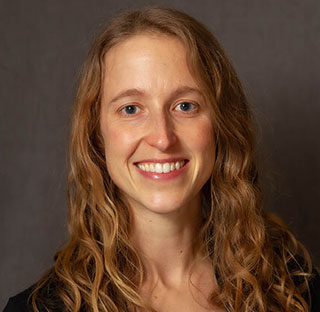
Erin Jackson
Soil & Crop Sciences
Bio
Erin is PhD student in the Department of Soil and Crop Sciences and a member of the 2022 InTERFEWS cohort (cohort 4). Her interdisciplinary research interests involve quantifying the socioecological drivers of climate-resilient agricultural systems for producer wellbeing and ecological health. Previously, as a master’s student at Tufts University she conducted research on smallholder farmer innovation and legume diversification in Malawi and was part of research teams investigating the contribution of global fisheries to human nutrition and developing methodology to quantify the human cost of food using life cycle assessment. Erin’s passion for teaching and collaborating with community stakeholders will contribute to the applied nature of her doctoral work; her professional experiences include directing sustainable agriculture, nutrition and garden-based science education programs for 9 years and teaching high school biology. Erin holds an MS in Agriculture, Food and Environment from the Tufts Friedman School of Nutrition Science and Policy, an M.Ed from Montana State University in Science Curriculum & Instruction, and a BS from the University of Vermont in Biological Sciences and Nutrition and Food Sciences.
Research
Coming Soon!
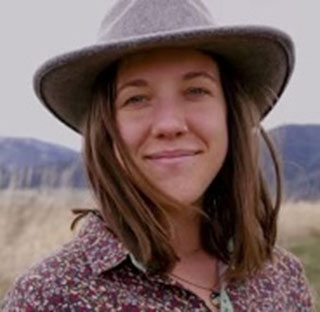
Andrea Loudenback
Soil & Crop Sciences
Bio
Andrea started her Ph.D. in Animal Sciences at CSU in May of 2022 shortly after finishing her master’s in the department of Animal Sciences. As of August 2023, she has switched to the department of Soil and Crop Sciences. She is part of cohort 4 (Fall 2022) of the InTERFEWS program. Before coming to CSU she received a BS in Animal Sciences and Marine Biology from the University of Minnesota. While at Minnesota, Andrea discovered her interest in sustainable cropping and livestock systems through independent research opportunities. Her current research focuses on the sustainability of beef and dairy agroecosystems and utilizes life cycle assessments and different modeling software. Andrea is especially interested in the intersection of quantitative and qualitative efforts as they pertain to the sustainability of our food and agricultural systems. Her dissertation work focuses on developing SMART foodscape systems in conjunction with working groups at Utah State and University of Lincoln in New Zealand, net zero dairy production in the United States, and life cycle assessments and costing analyses of a cow-calf operation in Florida.
Research
Coming Soon!
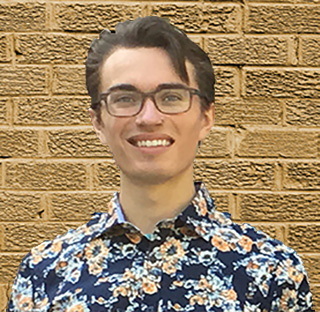
Chris Toy
Soil & Crop Sciences
Bio
Chris started his PhD program in the Department of Soil and Crop Sciences in August 2019, and became part of the first cohort of the InTERFEWS program in Fall 2019. His primary research interest is investigating how solar arrays impact the ecosystems they are sited in, and synthesizing the findings to inform better development and management of solar arrays. He is currently developing an observational study that will look at solar fields in the Northern Front Range region as well as an experiment that will manipulate seed mix and irrigation beneath a newly established solar array.
Previously, Chris worked at the OSU Wexner Medical center in the Nephrology Department studying the responses of the complement immune system in patients with lupus. Prior to that he earned a BS degree at The Ohio State University in Evolution and Ecology.
Research
Ecosystem Impacts of Solar Arrays on the Front Range
This project seeks to investigate the effects that ground-mounted solar photovoltaic (PV) arrays have on local ecosystems in the Northern Front Range region of Colorado. The existing body of research on this topic is still relatively small, however a number of studies suggest that the shelter provided by PV panels can actually create milder conditions that favor vegetative production in arid and semi-arid regions. These favorable microclimates can also give rise to other benefits through mechanisms such as dust flux reduction and passive panel cooling, both of which increase the efficiency of energy generation.
This project will utilize an observational design to compare numerous ground mounted solar PV arrays in the Front Range Region of Northern Colorado, a region with high potential for solar energy generation. Arrays will be characterized with variables including fixed panels vs single-axis tracking, mounting height, extent of grading, soil classification, and vegetation-management regime. Measured variables will include humidity, temperature, precipitation, panel temperature, soil water distribution, bulk density, soil carbon flux, biomass production, and vegetative community assembly. Control plots will be sited in nearby native plant communities to capture the local ecosystem sans solar PV arrays. In addition to the multi-site observational component, a controlled experiment will also be employed that manipulates seed mix and irrigation combinations in a complete block design.
The relevance of this project is to inform best practices for maintaining or augmenting ecosystem services in new and existing ground mounted solar PV systems.
Advisor: Meagan Schipanski (Soil & Crop Sciences)
InTERFEWS Mentor: Meagan Schipanski (Soil & Crop Sciences)
Interdisciplinary Aspects
The questions posed by this research are ecological in nature, however they are being posed in regard to a heavily engineered system in which human choices have large impacts on function. Additionally, the information gathered should help inform landscape scale planning.
Systems Perspective
This research is informed by a systems-based approach, which incorporates the fact that solar PV arrays do not exist outside of a relationship with the ecosystem matrix that contains them. This consideration is vital, as the need to quickly transition away from fossil fuel based energy sources in order to avert further climate disturbance has become clear. Therefore, as we expand solar energy capacity this research will help developers minimize detrimental impacts and potentially even expand the suite of ecosystem services generated by a given area of land.
Health & Human Sciences
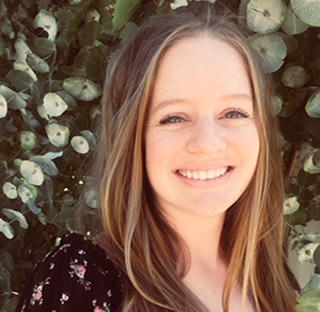
Annika Weber
Food Science & Human Nutrition
Bio
Annika Weber is currently a Food Science and Human Nutrition PhD student at Colorado State University and joined InTERFEWS in fall 2020 (cohort 2). She previously studied Biochemistry and Molecular Biology at California Lutheran University in Thousand Oaks, California, where she worked in an Analytical Environmental Chemistry Lab. During her undergraduate studies, she also received a grant from the NSF’s International Research Experiences for Undergraduate Students where she worked in an Environmental and Biomedical Lab in Dublin, Ireland. She then went on to complete her master’s degree in Human Nutrition at the University of Sheffield in Sheffield, England. Here, Annika carried out a human health project concerning heavy metal exposure through the consumption of crops grown on contaminated land. Annika’s current research interests include disease mitigation through diet, gut microbiome research, and sustainable food solutions. She hopes to apply her doctoral research to an international public health agency where can continue working to find integrative food solutions to promote nutrition and health across the lifespan.
Research
Sustainable Development of Rice Bran at the Food-Energy-Water-Health Nexus
The development of rice bran as a nutritious food product offers a food solution with social, sustainable, and enterprise opportunities across the supply chain. Rice bran is a major agricultural food waste and is a co-product of rice processing. Our previous research has demonstrated strong support for rice bran to become a human food ingredient with a rich nutrient profile, capable of preventing malnutrition and diarrheal diseases, especially in water scarce regions as well as low, middle-income countries with poor drinking water quality. This multi-faceted project implements an interdisciplinary systems-level approach for conservation of a widely available and accessible wasted food, especially in rural communities that grow rice as a staple food crop and face food insecurity. Furthermore, as rice bran product development requires little to no additional energy or land use, the environmental sustainability and economic potential further valorizes this crop by-product in improving global food security. This project will involve examining the feasibility of incorporating locally sourced rice bran in local diets for the (1) prevention and (2) treatment of malnutrition.
Advisor: Elizabeth Ryan (Environmental & Radiological Health Sciences)
InTERFEWS Mentor: Rich Conant (Ecosystem Science & Sustainability)
Interdisciplinary Aspects
This multifaceted project brings together elements from public health, agronomics and engineering. The development of rice bran as a sustainable food product will increase our understanding of how rice bran, in the context of food product development, can impact human health in infants, children, and adults. Findings also have social-economic impact in developing and developed countries.
Systems Perspective
This project tackles complex food system issues and aims to development a locally sourced rice bran product that is accessible and safe for human consumption, which could have measurable impacts on human health, as well as social, economic, and environmental benefits.
Natural Sciences
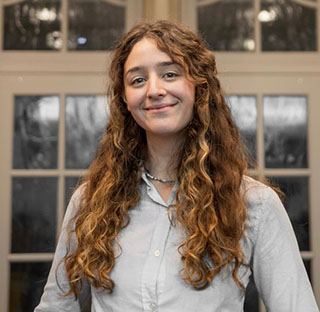
Ember Bradbury
Forest & Rangeland Stewardship, Ecology
Bio
Ember is a PhD student in Dr. Caroline Havrilla’s Dryland Ecology and Management Lab, Forest and Rangeland Stewardship department, and the Graduate Degree Program in Ecology who began her course of study in Fall 2022. She is a trainee in the fourth and final cohort of InTERFEWS. Ember’s doctoral research tailors climate-adaptive site-specific restoration strategies with a FEWS and environmental justice lens. Her primary project is supported by the Ute Mountain Ute Tribe in Southwestern Colorado and investigates strategies for repairing degraded water-limited landscapes on Tribal land while integrating solar development and regenerative livestock grazing. Ember is also a passionate activist for reproductive justice and survivor care, and additionally works as a birth doula and crisis advocate.
Research
Coming Soon!
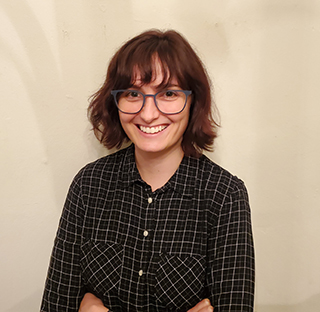
Elizabeth Ross
Psychology
Bio
Liz began the Applied Social and Health Psychology MS/PhD program in the fall of 2018 and joined the InTERFEWS program in the fall of 2020 (cohort 2). She received her B.A. in psychology from Oberlin College where she developed an interest in environmental psychology. She is currently working on completing the master’s portion of her program and will begin her dissertation project in the fall of 2021. She is interested in the intersection between psychology and climate change, messaging, and using behavioral interventions to promote low-emission behaviors.
Research
Coming Soon!
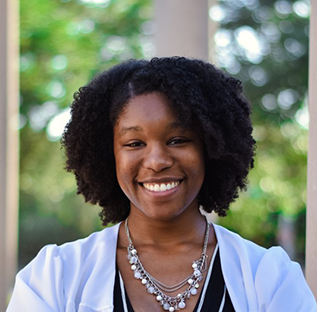
Adrienne Smiley
Chemistry
Bio
Adrienne joined the Chemistry department in the Fall of 2020 to pursue her PhD and became an InTERFEWS trainee Fall 2021 (cohort 3). She received her B.S. in Chemistry from Fisk University in Nashville, TN and primarily conducted research focusing on polymer materials for water purification and batteries. Currently, she is seeking to use inorganic materials to remove fluorinated species from water systems. Her general research interests include environmental remediation of various water systems and renewable/sustainable energy sources.
Research
Coming Soon!
Social Science

Azmal Hossan
Sociology
Bio
Azmal joined the Department of Sociology as a graduate student in the Fall of 2018, and became part of the first cohort of the InTERFEWS program in Fall 2019. He has a MA in Sociology with a Public Administration Minor. Azmal has almost completed his required coursework, and is now studying for his comprehensive exams and dissertation research. His research interests include: human dimensions of climate change, environmental justice, and the food-energy-water nexus.
Research
Settler Colonialism, Water Injustice, and Climate Change Adaptation in the Missouri River Basin
Azmal is conducting qualitative research on Settler Colonialism, Water Injustice, and Climate Change Adaptation in the Missouri River Basin. He has developed a strong partnership with the Great Plains Tribal Water Alliance (GPTWA), a community-based native organization located in South Dakota working to ensure their self-determination and water justice so they can adapt to the changing climate. Azmal has been working with GPTWA quite some time now as a contract researcher leading a project titled Tribal Climate Change Adaptation Water Needs in Northern Great Plains funded by USGS through NC CASC. For his Ph.D. dissertation, Azmal will apply decolonizing, indigenizing, and participatory action research methods so that a coproduction of climate change water adaptation knowledge is possible.
Advisor: Michael Carolan (Sociology)
InTERFEWS Mentor: Stephanie Malin (Sociology)
Interdisciplinary Aspects
Coming Soon!
Systems Perspective
Coming Soon!
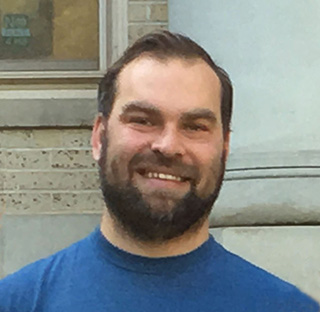
Curtis Kline
Political Science
Bio
Curtis joined the Department of Political Science as a graduate student and became part of the first cohort of the InTERFEWS program in the Fall of 2019. He received his B.A. in International Relations from United States International University, and his M.A. in International Human Rights from the University of Denver. His areas of focus are Environmental Politics, Comparative Politics and Political Theory.
Curtis is currently working on his coursework in his major sub-fields of political science and preparing for the comprehensive exams. Once these are completed, he will then develop his dissertation research project, which he anticipates will happen in the Fall of 2021. Curtis’ research interests include: social movements and contentious politics in Latin America; natural resource conflicts; territorial politics; environmental justice; and local democracy.
Research
Coming Soon!
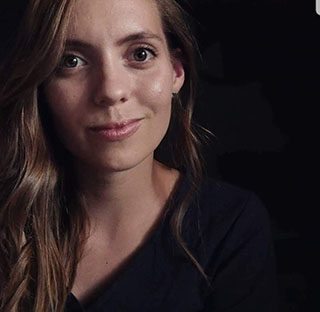
Nona Nyhart
Anthropology & Geography
Bio
Nona joined the InTERFEWS Program’s Cohort 4 in Fall 2022 as first year PhD student in the Department of Anthropology and Geography. Their research areas of interest are in health equity, disaster preparedness, and climate justice. Nona has a master’s degree in Urban and Regional Planning from CU Denver and served as a Public Health Emergency Planner during the COVID-19 pandemic response. These experiences have furthered their interest in supporting the meaningful involvement of impacted communities during the planning process of interconnected city systems.
Research
Coming Soon!
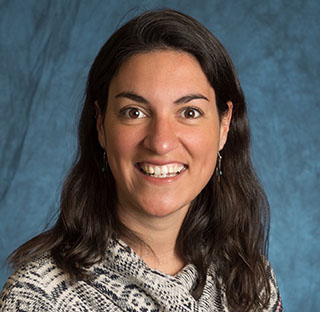
Emilia Ravetta
Sociology
Bio
Emilia joined the InTERFEWS program in the Fall of 2022 (cohort 4) as a third year PhD student in the Department of Sociology at Colorado State University. She previously studied Sociology at Universidad de Buenos Aires, in Argentina and earned a MA in applied sociology at Northern Arizona University in 2020. Emilia has almost completed her required coursework and is now studying for her comprehensive exams and dissertation research defense. Her research interests include environmental sociology and environmental justice, the relationship between social movements and the usage of natural resources, and the unequal access and distribution of resources.
Research
Coming Soon!
Graduated InTERFEWS Trainees
Engineering
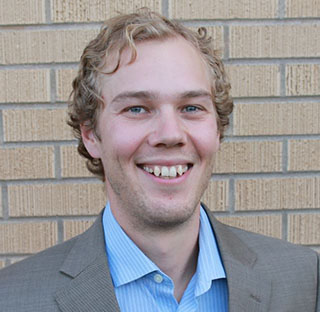
Benjamin Choat
Civil & Environmental Engineering
Bio
Ben focused on Hydrologic Science and Engineering while pursuing his PhD in the Department of Civil and Environmental Engineering at CSU. He transitioned into his doctoral program in January of 2019 as he finished the research component of his MS, and became part of the first cohort of the InTERFEWS program in Fall 2019. Ben’s interests consisted of understanding how water connects what are often thought of as disparate systems such as urban water systems, ecosystems, and agricultural systems. His worked centered on the fact that by viewing human activity within the context of natural cycles (e.g., water and nutrient cycles) we can manage our natural resources to sustain healthy societies for generations to come. Ben graduated from his PhD in the Fall of 2022.
Research
Urban Irrigation and Stormwater Management Effects on Agricultural Income
In water scarce river basins where new water supply is difficult if not impossible to come by, it is of utmost importance to get the maximum value out of each drop. At the basin scale, upstream groundwater recharge and return flows alter timing and availability of valuable water for downstream users. Understanding how growing populations, changing climates, and alternative water management approaches will affect recharge and return flow is critical to optimizing basin-wide water management. In the water scarce South Platte River Basin (SPRB) agricultural irrigators rely on a water supply which may be heavily impacted by upstream municipal water management. This project sought to understand how varying approaches to three urban water practices in the SPRB will alter downstream water availability and income for agricultural irrigators; more efficient lawn watering, increased stormwater infiltration, and increased stormwater harvesting.
It will become increasingly difficult to meet water demands as populations grow, especially in water scarce regions. Recent trends in such regions show agriculture going out of production so urban water demands can be met. Maintaining rural economies and national food security while meeting the needs of urban populations requires conjunctive management of urban and rural water resources. In a time when a clear cultural divide between urban and rural populations is expanding, water management must pierce that divide to meet basin goals. We must better understand how urban, suburban, and peri-urban water management affects rural dwellers to ensure all stakeholders are prioritized. With the growing need for rural-urban conjunctive water management, Ben connected urban water practices with rural income. Elucidating such connections are of increasing importance as population and water demand grows.
Advisors:
Aditi Bhaskar (Civil & Environmental Engineering; PhD Advisor)
Stephanie Kampf (Ecosystem Science & Sustainability)
Dale Manning (Agricultural & Resource Economics)
InTERFEWS Mentor: Sybil Sharvelle (Civil & Environmental Engineering)
Interdisciplinary Aspects
This project integrated urban water management and policy, hydrologic analysis, water law, economics, and agricultural and environmental effects of changes in streamflow.
Systems Perspective
The South Platte River Basin is a hydro-economic system where management changes upstream flow to affect water availability downstream. This project evaluated the effects of urban water management on streamflow, and then translated that flow change to an economic value for agricultural producers downstream.
Food Systems
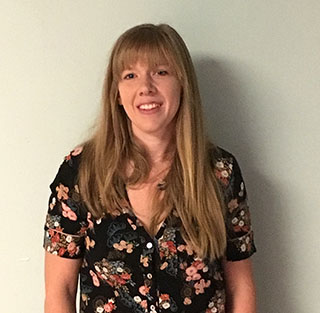
Lisa Eash
Soil & Crop Sciences
Bio
Lisa started her PhD program in the Department of Soil and Crop Sciences in January 2019, and became part of the first cohort of the InTERFEWS program in Fall 2019. Her broad research focused on applying ecological principles to increase efficiency and productivity of agricultural systems. Her dissertation research investigated the impact of cover crops on soil health and cash crop productivity in dryland agroecosystems on the Colorado Plateau. Previously, she worked in smallholder maize and bean systems in Central America, working to identify limitations to production that could be addressed by local development efforts. She was passionate about using a participatory approach in her research to ensure that findings can be directly applied to improve issues facing local farmers. Lisa graduated with her PhD in the Fall of 2022.
Research
Exploring the Viability of Cover Crops on the Colorado Plateau
On the semi-arid Colorado Plateau, dryland farmers are challenged by severely degraded soils and low and increasingly unreliable precipitation. Cover crops have been shown to improve soil fertility and mitigate soil erosion, but are associated with increased water demands, a cost that could mean decreased productivity in the short-term for farmers. Cover crop impacts are well understood in wetter climates, but water use and cash crop productivity trade-offs have not yet been fully understood in semi-arid regions. This project sought to assess the viability of cover crops as a solution to soil degradation and erosion on the Colorado Plateau by quantifying soil health benefits and costs in terms of water dynamics and agricultural productivity.
This project built upon existing research plots to explore the medium-term impacts of cover crops on soil health metrics (microbial community, nutrient retention, soil structure), water dynamics (soil moisture, infiltration rate) and agronomic and economic impacts (cash crop yields, overall profitability). On-farm research plots were included to assess these impacts across a range of cropping systems and management practices. This project employed a participatory approach and involved the input of various local stakeholders, including conservation districts and participating farmers, to best assess the potential of cover crops to contribute to soil and health and the longevity and profitability of dryland farming in the region.
Advisor: Steve Fonte (Soil & Crop Sciences)
InTERFEWS Mentor: Meagan Schipanski (Soil & Crop Sciences)
Interdisciplinary Aspects
The project was interdisciplinary in nature as it quantified the medium-term impact of cover crops on agronomic and ecological metrics, while also focusing on risks to producers associated with cover crop adoption and overall profitability of the cropping system.
Systems Perspective
To assess the viability of cover crops on the Colorado Plateau, it is essential to consider the impacts the farming context as a whole. A systems approach was utilized to analyze impacts that extend beyond soil health and agronomic indicators to the farm and community scale.
Social Science
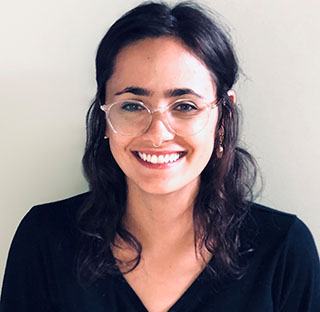
Julie Liebenguth
Political Science
Bio
Julie began her PhD program in the Department of Political Science in the Fall of 2018, and graduated in the Spring of 2022. In the Fall of 2019, she became part of the first cohort of the InTERFEWS program. She earned her BA in Environmental Geoscience and International Relations from West Virginia University, and her MA in Political Science from Colorado State University.
Her areas of focus was International Relations, Environmental Politics, and Political Theory. Her research focused on the practical and theoretical implications of incorporating notions of security into global policy debates about environmental change.
Research
Security as a Source of Legitimacy in Global Environmental Governance: Exploring the Food-Energy-Water Nexus
Environmental security issues are proliferating within global policy debates about environmental change, sustainable development, and human well-being. Security concepts are known to legitimate certain people, groups, or organizations (actors) who are perceived as having the capacity to safeguard against external threats, which gives power to some actors while reducing it for others. Therefore, it is increasingly crucial to understand how the concept of security functions within environmental politics and how the logic of security influences the architecture of global environmental governance. This research explored the proliferation of environmental security narratives across the food-energy-water (FEW) nexus to examine the social implications of considering security alongside complex and systemic environmental issues. The FEW nexus was a particularly relevant political space for this project, because actors working within and across the nexus frequently evoke the concept of security to discuss the risks and vulnerabilities driven by FEW issues. Moreover, solutions to FEW problems often incorporate multi-national corporations, which prompts important questions about the role of actors beyond the state in governing environmental security challenges and how they can or should utilize such power and authority. For instance, some FEW analyses propose that market-based actors are capable of effectively mitigating risks and insecurities posed by environmental challenges due to their cost-efficient practices, wealth of resources, and technological knowledge. In practice, such narratives that attribute security-keeping power to certain actors shape the way socio-ecological issues are governed by whom, for whom, and how. The purpose of this research was to explore the emerging link between non-state governance and environmental security, which is an increasingly prominent component of FEW systems thinking. A qualitative research method called critical discourse analysis was used to interpret and analyze claims made by multi-national corporations asserting their role in governing environmental security issues across food, energy, and water sectors. The ultimate goals of this project were to understand whether and how the concept of security impacts the distribution of power and authority in FEW systems, and to elucidate the broader relationship between non-state governance and environmental security across FEW issues.
Advisor: Michele Betsill (Political Science)
InTERFEWS Mentor: Stephanie Malin (Sociology)
Interdisciplinary Aspects
This project incorporated concepts from global governance, political theory, economics, sociology, and infrastructure development.
Systems Perspective
This research embraced a systems perspective by exploring the connection between non-state governance and security across food, energy, and water sectors. It also explored the FEW systems perspective more broadly to illuminate its underlying political dynamics.
